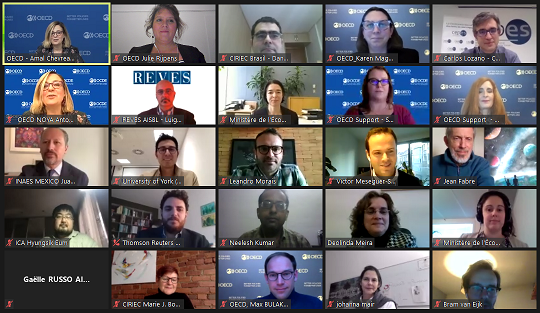|
■ What is the issue?
Legal frameworks have a significant impact on the visibility, recognition and legitimacy of the social and solidarity economy. Approaches to legal frameworks are very diverse across target countries of the OECD Global Action on Promoting Social and Solidarity Economy Ecosystems (EU27, Brazil, Canada, India, Korea, Mexico and the United States). Different factors have shaped country readiness to adopt, or not, specific legal frameworks for the social economy. They include, among others: the strategic priority given to the social economy itself and its organisations; the degree of development of community-based initiatives used to support civic engagement that creates social value and reinforces local development; and the share of firms pursuing both economic and social goals.
Associations, cooperatives, mutual organisations and foundations exist in all target countries of the Global Action. For example, associations and cooperatives are the most used legal forms by the social economy organisations (per respondents to a 2020 OECD mapping survey). All target countries have some form of legislation that regulate these organisations and entities, traditionally recognised as part of the social economy. More recently, regulation has been developed around social enterprises and community-based initiatives, considered also part of the social economy. Many countries have legal frameworks specific to social enterprises by adapting or introducing new laws (e.g. Belgium, France, Italy, Spain), or through strategies and action plans (e.g. the Netherlands, Sweden,). In some countries, there is also growing legal recognition of community-based initiatives (e.g. Brazil, India) to acknowledge the engagement of communities in local development. Finally, these entities and initiatives can also be identified within a broader approach of the social economy (e.g. Luxemburg) or independently from any reference to the social economy (e.g. the United States).
It is critical to understand these different legal trends as well as why and how they have been designed in the context of target countries, relay the type of measures that support the development of the social economy.
■ About the consultation webinar
The main objective of this consultation webinar is to clarify the different trends related to legal frameworks and how they are leveraged to scale the social economy.
The specific objectives aim to:
- Better understand the diversity, relevance and implications of the legal frameworks that regulate the social and solidarity economy (e.g. fiscal, public and private support, access to finance, access to market, skills, etc.) in different contexts;
- Take stock of the processes leading to the design of these legal frameworks;
- Identify possible criteria for assessing their performance;
- Highlight the crosscutting issues and policy examples that could feed the international guide on legal frameworks to be produced by the Global Action.
■ Organisation of the consultation webinar
The webinar is organised around two sessions:
- Session 1 – Adopt or not adopt legal frameworks for the social economy: context and purpose
- Session 2 – From process to performance: supporting the social economy
Each session is organised as follows:
- Introduction by OECD to set the scene and present the issues to be discussed (5 min)
- Contribution of ice-breakers: two expert speakers (5 minutes each)
- Discussion and Q&A with the audience (40-45min)
Participants will be asked to support their arguments with examples from the countries targeted by the Action.
|


 10 December 2020
10 December 2020 